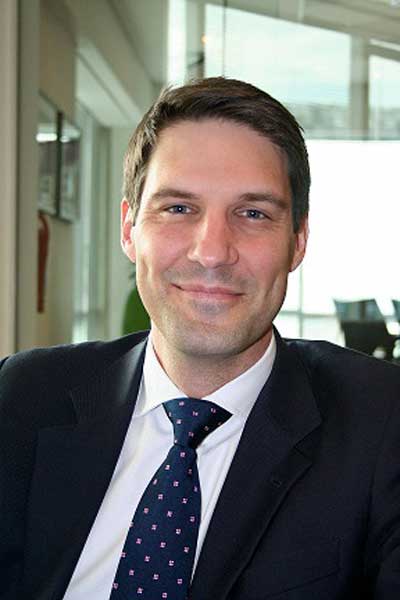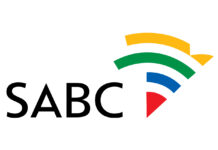As South Africans grapple with what the real implications are of South Africa’s sovereign downgrade, several other economic and political developments both locally and around the world will further impact how risk mitigation and insurance is managed in a post-downgrade economy.
According to Terence Williams, CEO of Aon South Africa, the country and indeed the world, is living in an era of unprecedented volatility across economics, demographics and geopolitics and as these risks evolve, organisations can no longer rely on traditional risk mitigation or risk transfer tactics. They have to explore new ways to cope with new and heavily inter-related complexities in an increasingly challenging business environment.
Risk readiness is falling, but volatility is growing
While volatility is increasing globally, Aon’s 2017 Global Risk Management Report shows that risk-preparedness is at its lowest level since 2007.
“We are seeing resistance to the higher cost of insurance as a result of global market conditions, and both consumer and business markets are cutting back on risk management and mitigation measures, which further exposes them to the financial implications of uninsured losses. The slowdown in the economy equates to less investment in risk management programmes, both in physical risk control and engineering and risk finance programmes. Where companies have a long standing risk management programme in place, these are generally continued, however trying to develop and implement any new programmes in the face of new and evolving risks is a costly exercise which companies may be reticent to invest in and do not go for the optimal solution, but would rather comply with the minimum requirements in terms of regulations and legislation,” explains Terence.
A widening skills gap and growing discontent
Locally, the uncertainty and volatility around politics and economics are likely to widen SA’s growing skills shortage if there is an exodus of skilled people. “Companies are going to be under huge pressure to afford and retain skilled people. South Africa is also unlikely to see any significant employment growth this year.
“Dissatisfaction with the status quo is also likely to manifest in violent protest action which has historically caused significant losses to private and public property and associated insurance claims. Expect violent strikes and protests to become a far more regular occurrence in the current political leadership race,” adds Terence.
Political Risks are a Global Challenge
When it comes to political risks, one stereotypically thinks of conflicts in emerging or frontier markets. Developed nations, which were traditionally associated with political stability, are becoming new sources of volatility and uncertainty that worry businesses. Despite the availability of more data and analytics, and more mitigation solutions, surveyed companies in Aon’s 2017 Global Risk Management Report are less prepared for political risk than ever before.
“Concerns over South Africa’s economy, and indeed the world’s may not go away soon, so organisations should learn from lessons in the past and embrace it for the long-term from a global perspective. Political uncertainty is one of the biggest enemies of business. It increases the cost of doing business and long-term investment and trade decisions cannot be made under uncertainty. Participants in Aon’s 2017 Global Risk Management Survey certainly share this view – where political risk/uncertainy was ranked at #15 in 2015, it is now ranked at #9,” says Terence.
Outlook on Reinsurance Markets
Insurance tends to lag behind economic changes in any market and reinsurance would not be any different. The first impact of the recent downgrades, from a primary insurance lens, would be that the primary insurance market becomes smaller, which in turn reduces the demand for reinsurance.
Simon Chikumbu, CEO of Aon Benfield says: “We believe that the global and international reinsurance capital and capacity will continue to be available for the South African insurance market, but reduced reinsurance premiums from a relatively shrinking primary market may see some of this appetite drying out over a period if the reinsurance companies, particularly foreign, do not write enough business – in US Dollar terms – to meet their minimum premium requirements.
“Probably the biggest effect of the downgrade is the impact of the sovereign rating on the decisions made by risk managers and insurance buyers in determining where to place their risks. The large local and international insured corporates with subsidiaries in South Africa may no longer feel comfortable with insuring their South African risks with South African insurers in a junk status market. This implies that buyers will now look at insuring their risks in other jurisdictions with a better sovereign rating. The implication of this is a loss to both the local primary and reinsurance markets,” adds Simon.
The South African domiciled reinsurance companies are all foreign-owned and most of them now have parental guarantees from their parents (in anticipation of the recent downgrade) and this will to some extent help them retain their business despite the automatic downgrades which come with the sovereign rating.
“We can see a situation where on one hand there could be risk flight in the primary market by multinational companies operating in South Africa, which will be a loss to both primary insurance and local reinsurers. On the other hand, locally domiciled reinsures will more and more have to use their parental guarantees to provide the desired security by their cedents. The question then arises as to how long these parent companies will continue to provide these guarantees to a market which is declining?” asks Simon.
Solutions to challenging times
The role of professional and qualified advice linked to deep market insights becomes crucial in securing financial security in challenging economic environments.
“Aon is seeing growing demand for ‘risk management solution specialists’ who are capable of providing an enterprise-wide risk management strategy. Managing risk and costs is imminently more crucial as the interconnectivity of traditional and emerging risks means organisations can no longer evaluate individual risks in isolation, but must look at all the top risks and people in a more holistic way. Aon’s role as advisers on the topic of risk is to constantly explore the long term sustainability of our clients, ensuring that transactional insurance broking is enhanced with tailored risk management advisory services covering areas such as risk financing, business continuity management, emerging risks and global trends,” concludes Terence.
About Aon
Aon plc (NYSE:AON) is a leading global professional services firm providing a broad range of risk, retirement and health solutions. Our 50,000 colleagues in 120 countries empower results for clients by using proprietary data and analytics to deliver insights that reduce volatility and improve performance.
About Aon South Africa
Aon South Africa is a leading provider of risk management, insurance and reinsurance brokerage, and human resources solutions and outsourcing services. Aon Empowers Results through over 700 colleagues in 13 offices in South Africa with its head office in Sandton, Johannesburg.























































































